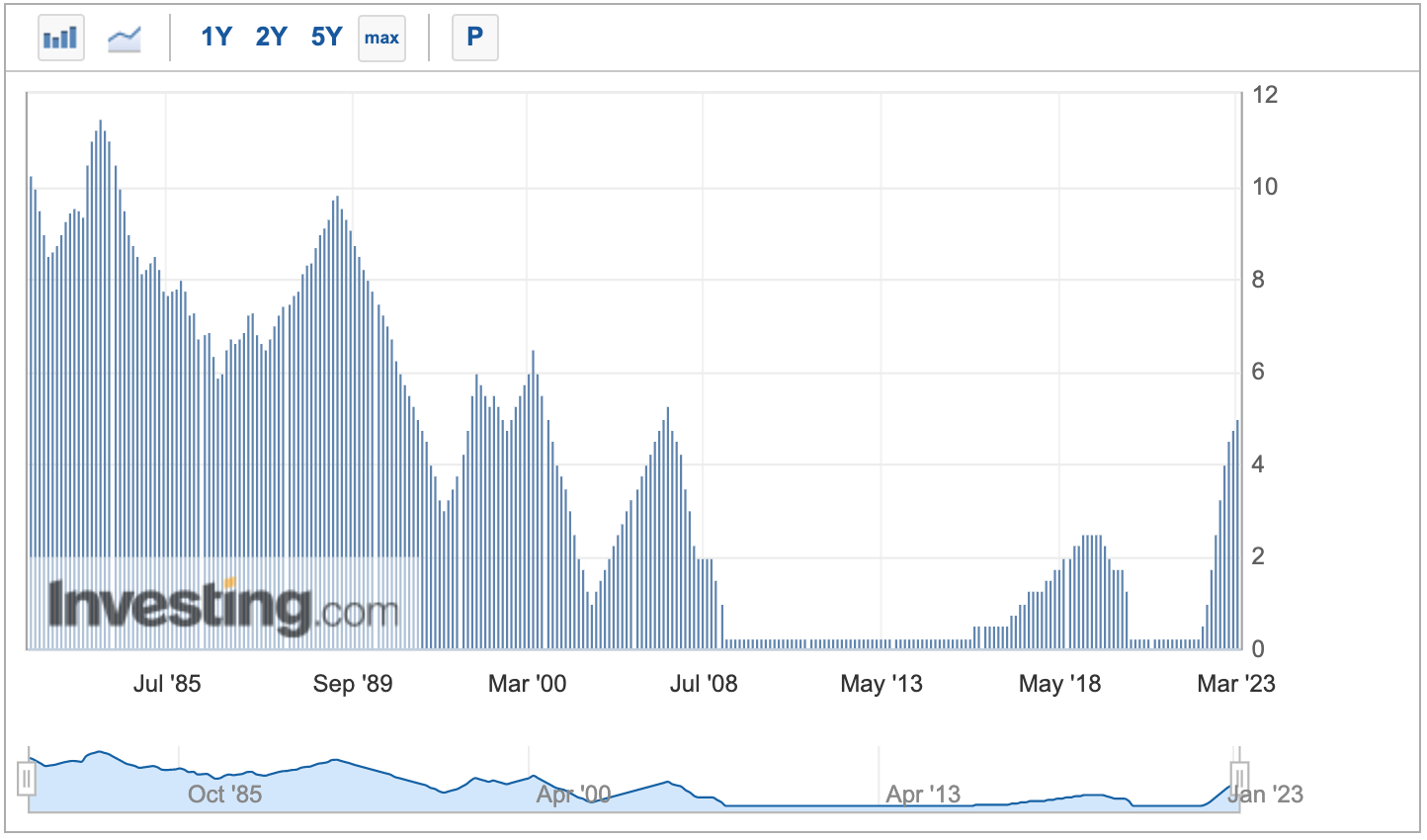|

B. G., Opalesque Geneva: 2020 to 2030 will be unlike any of the past four decades, from 1980 to 2020, when the bull markets were sustained and prolonged, according to Chua Soon Hock, founder of famed Asia Genesis Asset Management.
"We have likely entered a multi-year range market decade with more frequent bear phases," he said earlier this year. "We are experiencing the effects of fundamental changes in the macroeconomic environment, which are unprecedented times compared to the past 40 years. This new era is marked by rising uncertainty, geopolitical tensions, supply chain challenges, trade war, military build-up, as well as the cumulative effects of huge money supply trends leading to rising inflationary pressures and interest rates."
Asia Genesis, which was founded in 1999, was one of Singapore's largest global macro managers when Chua Soon Hock closed it in 2009. After a 10-year break during which he continued trading, he relaunched the company and started a new flagship global macro hedge fund, Asia Genesis Macro Fund, in May 2020.
Best in range-bound markets
With a 39-year track record of trading, Soon Hock has historically made money in bull and bear markets, with the strongest results achieved in range-bound markets.
A range-bound market is one in which prices bounce in between a specific high price and a low price. Range-bound markets are quite common during periods in which the market is unable to determine which way it would like to go. It's also known as a "choppy market".
Chua Soon Hock is looking forward to the rest of the decade, he tells Matthias Knab during a recent Opalesque TV interview, because the market environment will be favourable to his nimble and tactical trading approach, "especially if there are a lot of inflection points in the range-bound market."
He believes that in the current decade, we are going to have more range-bound markets. This is because we have had major macro changes for the last 40 years. From 1980 to 2020, we had global deflation and declining interest rates. Whenever there was a weak economy or a market crisis, the US Federal Reserve led other central banks in aggressively cutting interest rates and increasing the money supply.
"That is well and good when you have deflationary forces, peace dividends from the break-up of the Soviet Union, a huge increase in productivity from technology, and China serving the world as a very cheap and efficient factory," he notes.
Contradicting macro forces
But in the last five years, and especially in the last two or three years, we have had more intense trade, financial and technological sanctions from the US against China, and their relationship has deteriorated. The Ukraine war began. Furthermore, many emerging, resource-rich countries have started to process their basic materials, sell them at higher costs and consume more of them. All this has provided a base for inflation.
"So the deflationary forces are over, and more importantly, we have huge, accumulated money supply in the world's financial markets and systems," he adds.
If the central banks are not careful, if they ease interest rates, this would trigger a higher level of inflation. The flexibility needed to respond to weaknesses in the economy has been mitigated. In the past year or so, inflation has been strong and stickier, so the Fed has had to hike rates aggressively.
The Federal Reserve raised interest rates for the ninth time in a row on March 22, opting to continue its campaign against high inflation despite stress in the banking industry. Rates were raised by a quarter percentage point to 4.9%. Annual inflation in February was 6% - down from 9.1% last June, but still well above the Fed's target of 2%.
Fed Interest Rate - from 1982

Source
Money supply has not decreased much, he continues. During the Covid pandemic, the Fed created $6tln of new money and took back about $600bn. Thus there is still a huge amount of money floating around.
Money Supply M0 in the United States - last 25 years

Source
"So we have major contradicting macro forces in the world now. One is stickier inflation, and on the other hand, we have all these trade problems, logistics issues, and emerging countries consuming more of their basic resources."
The fundamentals that applied in the last 40 years have already changed. All the contradictions should be reflected in range markets rather than sustained bull markets. When breaking down the past four decades, we had on average eight to nine years of bull market and one to two years of bear market. Chua Soon Hock believes that in the current decade (2020-2030), we will have seen about six years of bull market and four years of bear market, in different combinations.
Bear markets since 1980

Source
It will play to Asia Genesis' strength since the managers can make money in bear markets, where they will apply high concentration and sensitivity, but also in inflection points of range-bound markets, where they excel. The latter will be very challenging for many traders, fund managers and investors, he says, especially when there are so many computer programs and AI trading platforms which tend to be momentum-driven and very concentrated. "So the cycles will become shorter, and they will swing up and down more often, and I think that should give us some more advantage."
The Asia Genesis Macro Fund returned +15.3% in 2022 on a Sharpe Ratio of 1.2. The all-weather fund engages in discretionary, nimble tactical trading. Between 60% and 70% of the fund's trading is in stock indices. The remaining exposures are in interest rates and major currencies. The fund trades exclusively in highly liquid exchange-listed futures and options, allowing it to offer a monthly redemption option with no lock-up.
You can watch the whole interview here: brightminds.tv/chua-soon-hock-asia-genesis-macro-fund/

Related articles:
19.Jan.2023 Opalesque Exclusive: Asia veteran's hedge fund relaunch delivers as promised
30.Jan.2023 Global macro hedge fund Asia Genesis gets listed on ADDX
Past Big Picture articles:
|